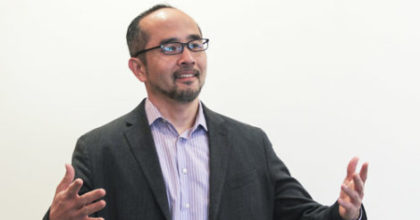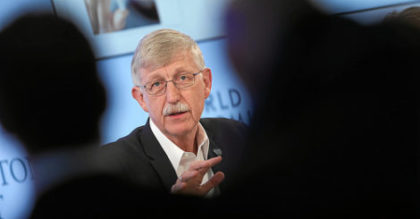Last week I mentioned an opportunity to hear from mathematician Francis Su on the topic The Integration of Faith and the Academic Calling (a webinar cohosted by ESN and the Society of Christian Scholars). I am not aware of any opportunities to view the presentation after the fact, so for those of you who were unable to participate, I will share a few highlights. He covers some similar territory in an interview with Quanta (text, video), his Mathematical Association of America presidential address, and this article on … [Read more...] about Science Corner: Adding to the Conversation
francis su
Science Corner: 2019 BioLogos Conference Recap
Last week I had the opportunity to attend the BioLogos conference in Baltimore, MD. Although there is a healthy dose of science, their conferences have a different feel than American Scientific Affiliation meetings, or at least the one I attended. ASA is primarily focused on scientists and students in the sciences, while BioLogos positions itself to address a broader audience. As a result, their conference attracts pastors, middle and high school teachers and interested members of the public in addition to an assortment … [Read more...] about Science Corner: 2019 BioLogos Conference Recap
Science Corner: Prime Real Estate
Want to hear about science communication from the science editor of Christianity Today, a public radio producer, and me? Details at the end. The old saw about real estate says that the most important features are location, location, location. Mathematicians care about location too, such as the location of the prime numbers. Prime numbers, divisible only by themselves and 1, have several uses, most popularly in the encryption that guards our Internet transactions. Consequently, we are always on the lookout for new … [Read more...] about Science Corner: Prime Real Estate
Science Corner: Math with a Flourish
"I was told there would be no math." That line from a Saturday Night Live sketch sums up a common attreaditude. When I started a science & faith Sunday School series of my own devising with some math topics, that was essentially the criticism I received from those who opted not to return for week two. I find myself more inclined to the sentiment "To Live Your Best Life, Do Mathematics," the title of a recent interview with Francis Su, friend of this blog, mathematics professor at Harvey Mudd and outgoing president of … [Read more...] about Science Corner: Math with a Flourish



